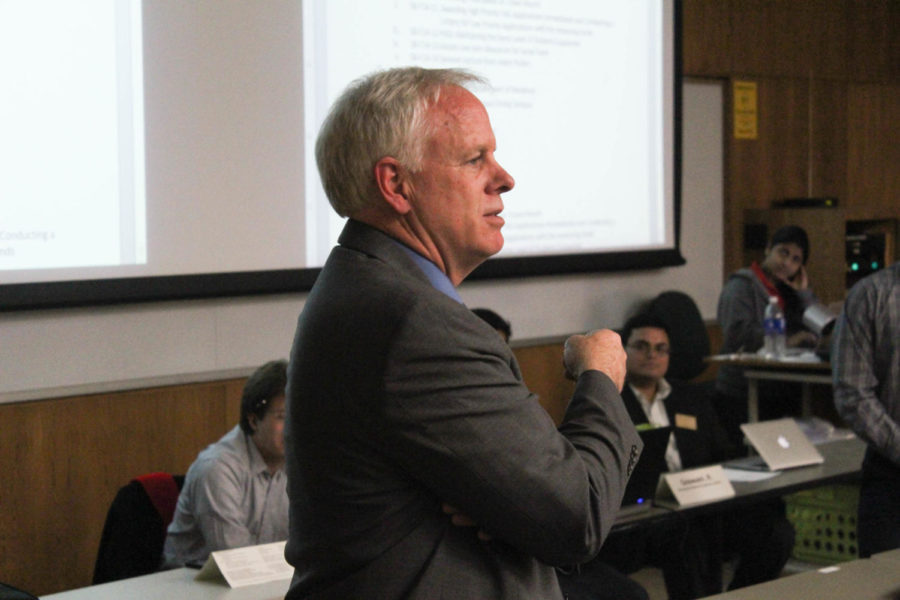GPSS finalizes grant protocols, discusses housing
November 11, 2014
Amendments to the Professional Advancement Grant bill, plans for a new residence hall and updates on a new dining center were all discussed at the Graduate and Professional Student Senate meeting Nov. 10.
Three amendments to the grant bill were passed after being debated by the Senate for months. The amendments finalized the grant procedures when the bill goes into effect Jan. 15, 2015.
The grants provide $180 to applicants for academic conference expenses.
The Senate voted to award grants based on the student’s travel month, award high-priority applicants on a first-come basis and fund the same number of students as in the 2014 fiscal year.
Cory Kleinheksel, chairman for the grant bill, said students will be able to apply for spring semester grants at the end of this week on the GPSS website.
Peter Englin, director of the Department of Residence, spoke with the Senate about graduate housing needs.
Increases in enrollment have led to a need for both undergraduate and graduate housing, and Englin asked the Senate for the opinions and concerns of graduate students.
“The hard part for me is understanding the demand,” Englin said, referring to which style of housing they want to see implemented.
He explained the difficultly of knowing whether graduate students want an apartment experience or a more dorm-oriented housing arrangement.
Plans for a new residence hall will be approved or denied by the Board of Regents at the December meeting, but Englin said housing will remain an issue because many graduate students would rather live in an apartment.
A new program students can use to search for roommates, Rent Smart Ames, was explained to the Senate. Englin compared this program to eHarmony for housing, where students can search for roommates using different criteria.
Rent Smart Ames can be found through the City of Ames’ website.
Since 2008, there has been an enrollment increase of over 6,700 students. As enrollment continues to grow, the Department of Residence and the university will be working together to ensure students are receiving the same services.
Nancy Keller, director of ISU Dining, discussed improvements to be added to dining services.
ISU Dining operations currently support food stores, vending, a commissary kitchen, bakery, Linden support services and administrative operations.
“This is where the most growth is going to happen,” Keller said. “This is a central focus for us right now.”
Simple Plate will be a new addition to the Union Drive Marketplace in January. Simple Plate is based on an allergen-free concept and stresses correct portion size, which can be difficult for students to keep track of, Keller said.
“All of us are trying to consider what people find healthy,” Keller said.
Hillary Kletscher, president of the Government of the Student Body, announced updates on current campus issues.
Kletscher said changing and adding testing centers due to a high volume of students during midterms and finals is being discussed. The model for CyRide’s funding is also set to be voted on in December.
CyRide is currently partly funded by student fees, the City of Ames and Iowa State. According to Kletscher, although 90 percent of students use CyRide, their fees only account for 63 percent of the CyRide budget. Kletscher said she opposed an increase in student fees to account for this imbalance.
GPSS will reconvene in January.







